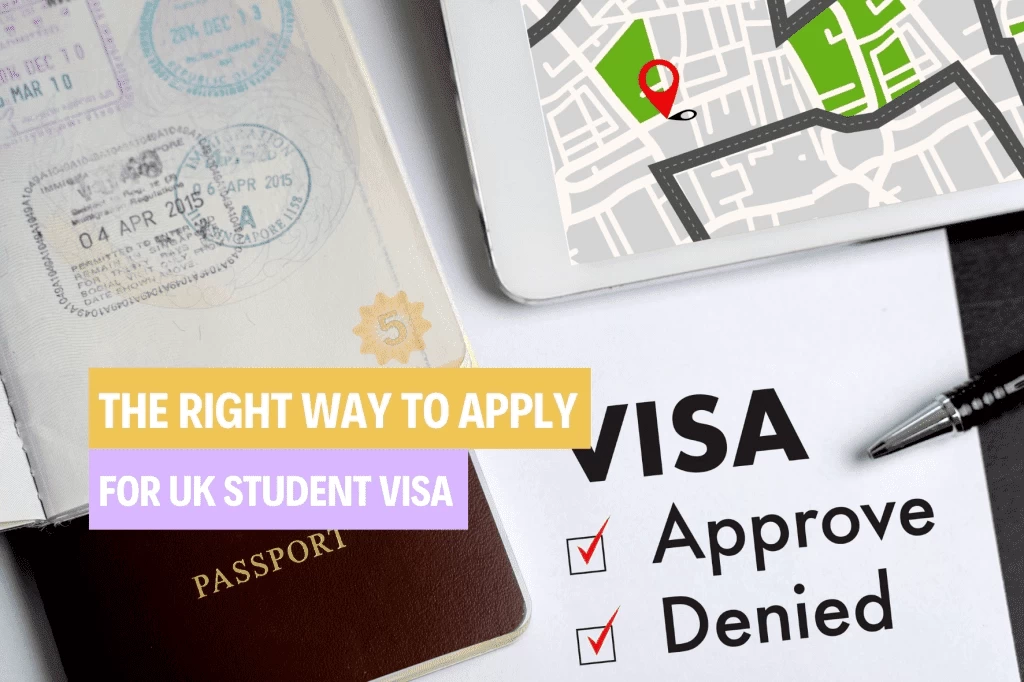- BlogSummary: Get a breakdown of the cost of living in the United Kingdom for international students and find practical budgeting tips to manage your expenses effectively.
- BlogReadingTime: 4
When you plan to study abroad, it is normal to want to pre-calculate your expenses to know how much you will be spending or to set a budget for each month as it can be costly. Keep in mind that the average cost of living in the UK differs from the average cost of living for international students. This is because there are certain privileges available to international students during their study period. This includes discounts on transportation charges and even discounts at restaurants. You can avail of these benefits to cut down on your overall expenses while you study in the UK.
As an international student planning to pursue higher education in the UK, you must first do your research to understand the average living costs in the UK . The total budget might differ based on their individual lifestyle and the locality. Therefore, planning the budget beforehand is always a wise decision.
Table of Contents
Read this blog to understand the average cost of living in the UK for international students.
Cost of Living in UK: Tuition fees
Undergraduate tuition fees for international students in the UK range between £12,000 – £32,000 per year for full-time courses. Note that the higher range is for degrees studied at the best Universities . Medical and health sciences degrees would usually cost considerably more than the aforementioned range which may exceed £50,000 per year.
Generally, international undergraduate fees cost about approximately £14,000 – £21,500 per year on average for middle-tier universities for non-medical and health sciences programs.
Cost of Living in UK - Rent
If you are planning to live closer to the city, the cost of living in the UK may vary between £500 – £600 per month. However, if you choose to stay in the suburbs, the rent will cost you roughly around £350 – £450 per month. You may also opt to stay in the university accommodation as well which would save you on transport to classes however rent would be approximately £450 a month depending on your university.
Most international students often prefer to stay in the accommodation provided by the university. This is one of the easiest ways for them to make connections with people and build friendships. Later, they can opt for shared rent spaces with their friends in a locality that suits their needs better.
Cost of Living in UK - Food and grocery
The food and grocery budget might vary depending on the lifestyle of the person. If you are someone who likes to prepare meals or cook your own dinner, you may save up more costs by budgeting your own groceries to approximately £200 – £250 a month. Some students who live on campus could choose to subscribe to a meal plan to save the hassle which costs approximately £13 – £15 a day which serves 3 courses on weekdays, 2 courses on weekends.
However, your expenses might be much higher if you prefer to eat out. In cases like these, you can use student ID for discounts or even download the UniDays app which gives you a list of all the restaurants in the UK that allows you to get a discount worth up to 10% – 30% off your bill simply by registering with your student email!
Cost of Living in UK - Transport
You will have to take into account your travel expenses if you live away from your university. This can be anything from £10 per week, or more if you live in London. As using taxis would be quite expensive, you could opt for travelling apps and cards for bus and train travel and cut down on your expenses. Many students use bus passes such as the FirstBus app or StageCoach app which allows students to get day passes or as low as £90 per term up to £325 per year student bus card. Other than that, students could get the 18+ student oyster card which entitles you to a 30% discount off the Tube fares (mainly for students in London) or railcard (outside London) in which students aged 16-25 years old could purchase a 1-year railcard for £30 or 3-year railcard for £70. As a student, you could make use of these privileges and cut down a lot on your overall expenses.
Other expenses
Phone bills, water bills, electricity bills and the internet! All these may add up to an approximate total of £150 monthly. However, some campus accommodations may include the bills into account which would be cheaper compared to others living on their own.
Let's take a look at the cost of living in UK for an international student in the following cities:
|
Expenses |
Birmingham |
Dundee |
Exeter |
London |
Bristol |
Newcastle |
Coventry |
|
Accommodation (Annual) |
£5,854 |
£4,509.96 |
£6,684.16 |
£9,697 |
£7,524.83 |
£5,682.46 |
£5,400 |
|
Public Transport (Annual) |
£246 |
£215 |
£321 |
£1,216 |
£321 |
£256 |
£384 |
|
Eating In (Monthly) |
£180.30 |
£169.06 |
£166.40 |
£210.20 |
£173.29 |
£174.07 |
£203.52 |
|
Eating Out (Per Meal) |
£1 |
£12 |
£11 |
£15 |
£15 |
£12 |
£10 |
|
Nightlife (Nightclub Entry) |
£5 |
£3 |
£5 |
£11 |
£5 |
£5 |
£5 |
That said, these figures are only an approximate calculation of the Living Costs in the UK for an international student. This would still vary depending on each student’s preferences and lifestyle. These numbers also change depending on the city the student lives in. Every student’s lifestyle or social life is different therefore do not forget to take into account those expenses too. Happy planning!







